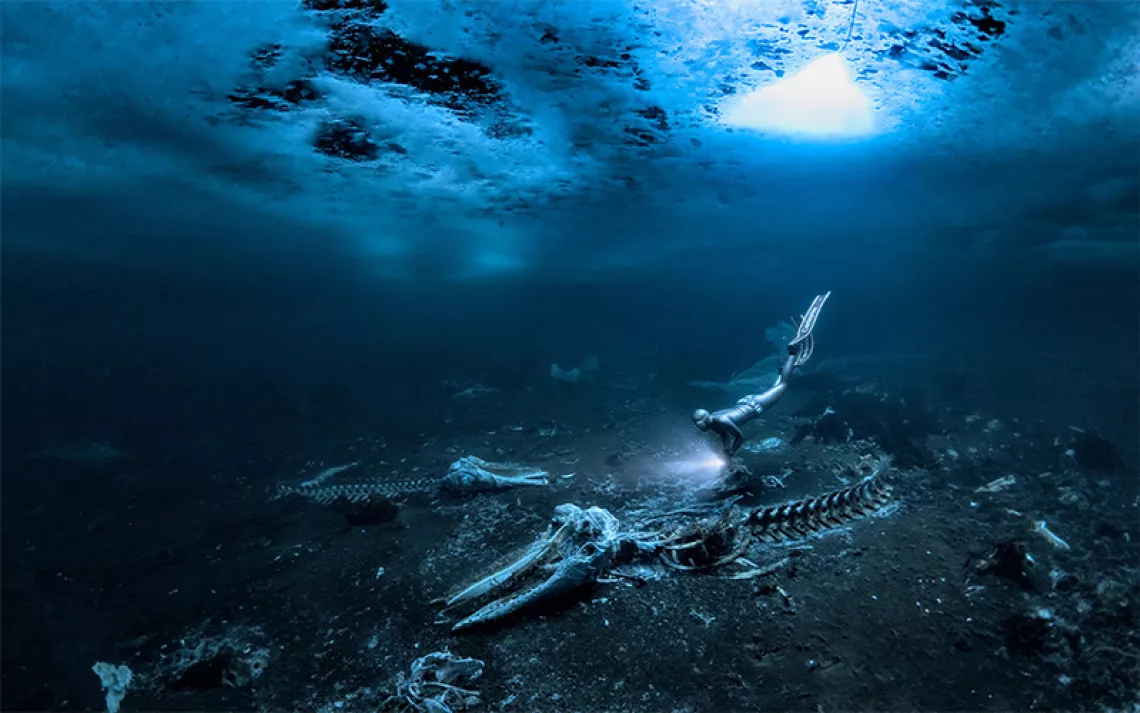An Earth Day for Life on Earth
Earth Day should be a festival about letting other living things be, just because they are alive

Photo by Egorych/iStock
Editor's note: In 2020, on the 50th anniversary of the first Earth Day, we asked scholar Jedediah Britton-Purdy to share some thoughts about how to revitalize the unofficial environmental holiday. His thoughts are just as wise today as they were three years ago, and so we're republishing his essay to mark Earth Day 2023.
There's no doubt that we should have Earth Day. The question is, which Earth Day?
There have always been many coexisting versions of Earth Day, because there have always been many versions of environmentalism. During the first Earth Day, environmental politics was centered on the pollution crisis, but the millions of people who participated couldn't be contained by any particular agenda. Environmental politics then included calls for "black ecology," focused on housing, toxics, and justice; criticisms of growth and of capitalism; and visions of spiritual ecology that stretched from reframed Christianity to Western Buddhism. During the 1990 Earth Day, establishment environmentalism was focused on saving the Amazon rainforest and patching the ozone layer, but the more-radical folks who participated in it went on to become the protesters who blockaded the World Trade Organization in the 1999 Battle of Seattle.
Today, Earth Day is almost inevitably about climate change, because at long last there is a massive mobilization of conscience around the crisis. I would guess that if you asked people at random about Earth Day, they might confuse it with the climate strikes. After all, the events look much the same: people of all ages, but especially young ones, rallying with pictures of the planet and making pleas for political action to stop ecosystem destruction.
The environmental movement and the Earth Day Network need to embrace the reinvention that the climate generation brings. Earth Day should be a symbol of how radically things need to change. This means embracing the idea that saving the planet will require developing a politics of infrastructure: about transportation, food systems, city and regional planning—about the whole human world. And that, in turn, requires embracing the politics where there is the greatest energy for those changes: the Green New Deal, the Sunrise Movement, the climate strikers.
Why a politics of infrastructure? Because the world makes hypocrites of us all. There are at least 2,000 tons of infrastructure for every human being—things like roads, buildings, pipelines, and cables. We tap into it for everything we do: getting to work, being with family, finding food, staying warm. As a species, we would hardly exist without this technological exoskeleton. It determines our ecological impact much more than individual choices can. I can choose my route through the city, but the city itself determines my carbon emissions.
Until we change our built world to make peace with the planet, we need festivals to mark the difference between the lives we have and the lives we need to live. Earth Day should be about the urgency of remaking the artificial world so that the larger living world can go on being.
But Earth Day should not become just another climate strike. Earth Day and the global climate movement need to be linked, but there are also reasons for them to stay distinct. Everyone should care about climate, since it's an issue of justice, security, and political economy, not to mention civilization's survival.
The environmental movement, however, is not the same as the movement to save civilization. Environmentalism also does something else. It speaks for the value of nonhuman animals, for helping ecosystems flourish whether or not they have a human benefit, and for the ideal of wilderness, which has plenty of problems but is also precious.
Earth Day should be, among other things, a festival for those who wish to remind everyone that we should let other living things be just because they are alive, and that we should preserve places that, to the greatest extent possible, have nothing to do with us. Solidarity with other people is essential now, and so is sympathy with everything that lives. Earth Day is about trying to make both of those real.
This article appeared in the March/April 2020 edition with the headline "An Earth Day for Life on Earth."
More Earth Day essays:
 The Magazine of The Sierra Club
The Magazine of The Sierra Club



